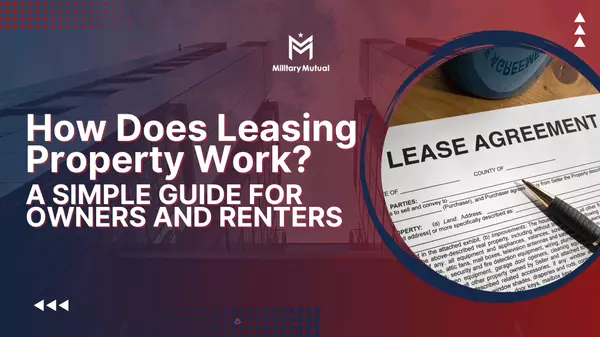Tax Advantages of Real Estate Investing: What Every Investor Should Know?

Tax Advantages of Real Estate Investing: What Every Investor Should Know
Published: June 2025
By Military Mutual
Real estate isn’t just about rental income and long-term appreciation—it’s also one of the most tax-advantaged investment strategies available. Whether you’re a first-time landlord or a seasoned investor, knowing how to leverage real estate’s tax benefits can significantly boost your returns.
Here’s a breakdown of the key tax advantages of real estate investing and how to make the most of them in 2025.
📉 1. Depreciation Deductions
What it is:
Depreciation lets you deduct the cost of your rental property over a 27.5-year period (for residential), even if the property is actually increasing in value.
Why it matters:
It reduces your taxable income without impacting cash flow.
Example:
Own a $300,000 rental home (excluding land)? You could deduct over $10,000 per year in depreciation alone.
📊 One of the most powerful tools for sheltering rental income.
🧾 2. Deductible Expenses
You can deduct nearly all ordinary and necessary expenses related to operating your rental.
Common write-offs include:
-
Mortgage interest
-
Property taxes
-
Repairs and maintenance
-
Insurance premiums
-
Property management fees
-
Utilities (if you cover them)
-
Travel related to property upkeep
💡 Keep detailed receipts and track expenses monthly to maximize deductions.
💸 3. 1031 Exchange (Tax-Deferred Exchange)
What it is:
A 1031 exchange allows you to sell one investment property and buy another of equal or greater value—without paying capital gains taxes immediately.
Why it’s powerful:
You can defer taxes indefinitely, growing your portfolio without IRS interference.
🔄 Used strategically, a 1031 can supercharge long-term real estate wealth.
📉 4. Capital Gains Tax Benefits
When you sell a property held for over one year, you pay long-term capital gains tax—typically lower than ordinary income tax rates.
Extra tip:
If you lived in the property for at least 2 of the last 5 years before selling, you may qualify for the Section 121 Exclusion:
-
Exclude up to $250,000 in gains ($500,000 for married couples) on your primary residence.
📈 Timing your sale strategically can save thousands in taxes.
🏦 5. Pass-Through Deduction (Section 199A)
If you own your rental property through a pass-through entity like an LLC or as a sole proprietor, you may qualify for a 20% deduction on qualified business income under the Section 199A provision.
Example:
Earn $50,000 net rental income? You might be able to deduct $10,000—before calculating taxes.
✅ Consult with a tax advisor to ensure eligibility under IRS rules.
🧠 6. Tax Advantages for Short-Term Rentals (Airbnb, VRBO)
Short-term rental income can also qualify for deductions—sometimes even more if it’s considered active income (vs passive).
Potential benefits:
-
Accelerated depreciation using cost segregation
-
Business deductions for advertising, software, cleaning, and furnishings
-
No self-employment tax in certain scenarios
⚠️ Rules are complex—especially regarding personal use—so talk to a CPA.
📚 Final Thoughts: Real Estate = Real Tax Benefits
From depreciation to 1031 exchanges, real estate investing offers some of the most generous tax benefits in the financial world. With the right strategies—and a savvy tax advisor—you can keep more of your profit and grow your wealth faster.
Categories
Recent Posts










"My job is to find and attract mastery-based agents to the office, protect the culture, and make sure everyone is happy! "
